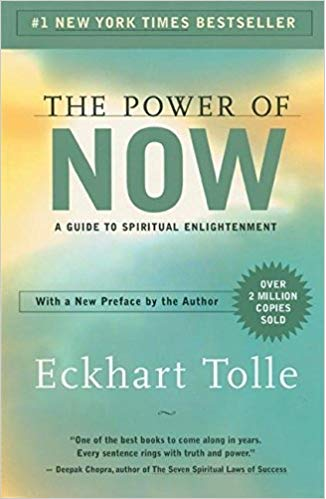A Review of The Four Agreements

Don Miguel Ruiz, author of the book The Four Agreements: A Practical Guide to Personal Freedom, shares ancient Toltec wisdom that everyday people can apply to modern life. The material in this book is relevant to mental health as its concepts mirror many aspects of cognitive behavioral therapy (CBT). CBT helps people change their thoughts and behaviors as a way of tackling mental health symptoms such as anxiety and depression.
Ruiz, who was trained as a physician, had a near-death experience after a car accident. This experience changed his perspective and he decided to immerse himself in learning the wisdom of his ancestors, the Toltecs. He has shared the gift of his knowledge in his easily-digestible writings.
I used to recommend this book to clients, as it is both practical and thought-provoking. It is simultaneously deep and simplistic. While the advice is simple and easy to understand, actually incorporating it into your life is a real challenge. This speaks to how fixed our faulty beliefs and destructive behaviors can be.
Partially spiritual in nature (there are many Judeo-Christian references), this book is not a religious writing. The non-believer need not be turned off by this. Rather, if one considers these references as metaphorical, it can still be helpful to someone of any belief system.
The Four Agreements essentially proposes four concepts that we can implement in our daily lives. Ruiz claims these will convert your life from living in “hell” to experiencing “heaven” on Earth. That’s a bold assertion; however, in reading his book, you can imagine how making these changes in your life could significantly improve it.

Ruiz begins by explaining that all humans are raised to accept certain ideas (agreements) that are imposed on us by our parents, school, religion, and society at large. These agreements are not based in reality. Rather, they are ideas we have blindly accepted.
He goes on to explain that we are born pure, but at a very young age we are “domesticated” – just as a colt would be “broken”. Basically, he suggests that our spirits are broken at a young age, thus we abandon our true selves.
We quickly learn that in order to be rewarded, and to avoid punishment, we must behave in a certain way. Behaving in the way others expect oftentimes goes against our true nature. In addition to going against our true selves, it creates chaos in our relationships.

He goes into different personas we have constructed mentally: the victim and the judge, for example. I won’t go into detail here about these characters, but will point out that they interact with each other to create emotional pain and self-recrimination.
In order to get a fuller understanding of how these self-created characters create destruction and suffering in our lives, I recommend you read the book in its entirety.
Ruiz’s four agreements are simple in concept but not easy to implement in our lives. Some of the ideas go against years of conditioning which often drives us to think and behave on autopilot.
He has written another book, The Four Agreements Companion Book, which offers help in applying the concepts from The Four Agreements into your life.
So, what does The Four Agreements propose that we consider and what changes does it recommend we make in our lives?
Ruiz posits that there are four agreements we can adopt that will make incredible changes in our quality of life. Those agreements are:
- Be Impeccable with Your Word
- Don’t Take Anything Personally
- Don’t Make Assumptions
- Always Do Your Best
I’ll review a brief summary of each agreement, but to get a full appreciation of each, I recommend reading the book.
Be Impeccable with Your Word
This agreement refers to being honest with others, but above all, with ourselves. He claims that words are extremely powerful- having the ability to create beauty or misery in ours and others’ lives. Being impeccable with your word means being cautious with the words we use when speaking with others, making sure we use our words with integrity.

In addition to communication with others, we should be aware of what our inner voice is telling us about ourselves. Those internal conversations we have about ourselves can be kind and truth-based or they can lead to self-disdain. What we say about ourselves can be powerful in building us up or tearing us down.
Think of a time when you inadvertently hurt someone by something you said. Consider how powerful words can be; and they can’t ever truly be taken back, even when we apologize. Pay attention to that voice in your head- the one that critiques everything you do. How do those words affect your mental well-being?
Don’t Take Anything Personally
Ruiz suggests that what people do and say about us has absolutely nothing to do with us; thus, their behavior and commentary should not affect us. Instead, their words and actions are solely a reflection of their own perceptions, or agreements.

It’s hard to imagine truly believing this and actually adopting this idea, as we can so easily feel hurt by others’ words and actions; yet Ruiz claims that others’ actions are only a reflection of their own perspective and have absolutely nothing to do with us. He goes so far as to use the example of someone shooting us. He says that, even to that extreme, we should not take things personally.
We all share agreements with the society in which we are raised; however, each individual has their own agreements. Each person reacts to others based on those agreements, many of which are false.
Think about a time you felt hurt by someone. Imagine their perspective. What may have driven their behavior? What personal agreements may they have been acting on? Can you see how the incident may not have had much to do with you at all?
Don’t Make Assumptions
This agreement addresses our tendency to assume we know what someone is thinking, feeling, or what their intentions may have been. We humans are expert at doing this. We can create an entire narrative based on where we assume the other person is coming from.

Making assumptions disturbs our sense of peace by feeling hurt by what others say and do. We can get caught up in trying to analyze what someone meant or why he or she acted a certain way. We often arrive at the wrong conclusion because we can’t really know another person’s internal life.
Ruiz feels we should simply ask another person about their intentions, rather than assuming we can figure them out. If we don’t have the opportunity to ask for clarification, we should remind ourselves that we can’t truly know another’s motives.
Can you remember a time when you made assumptions about what someone said or did and it created drama because your interpretation was completely off?
Always Do Your Best
The final agreement is to always do your best. When you strive to always do your best, you really have nothing to blame yourself for. We all have limitations, so each person’s “best” will differ.
Ruiz points out that our best will change with circumstances. If we are feeling sick or tired, our best won’t be as quality than if we are healthy and feeling well-rested. He says we need to take these things into account when assessing whether we are doing the best we can.
 In addition to the book, there is a gorgeous card deck that can support you in applying the four agreements to your life. Illustrated by various artists, these cards can be placed in strategic areas of your home or work as reminders of your commitment to live by these principles.
In addition to the book, there is a gorgeous card deck that can support you in applying the four agreements to your life. Illustrated by various artists, these cards can be placed in strategic areas of your home or work as reminders of your commitment to live by these principles.
Each card includes an affirmation that supports one of the four agreements on one side with an explanation on the other. Some examples include: “Let go of self-judgment and blame”, “Take action without expecting a reward”, “Learn to ask questions”, and “Everyone lives in their own dream”.
I can’t say enough good about The Four Agreements. It’s a quick read; but don’t confuse its readability with lack of depth. In addition to this inspiring book, Don Miguel Ruiz outlines a fifth agreement in his book The Fifth Agreement: A Practical Guide to Self-Mastery. It may be worth checking out!
TheMentalHealthBlog.com is a participant in the Amazon Services LLC Associates Program, an affiliate advertising program. TheMentalHealthBlog.com earns fees from products sold through qualifying purchases by linking to Amazon.com. Amazon offers a commission on products sold through their affiliate links.




Now i have to read the book…